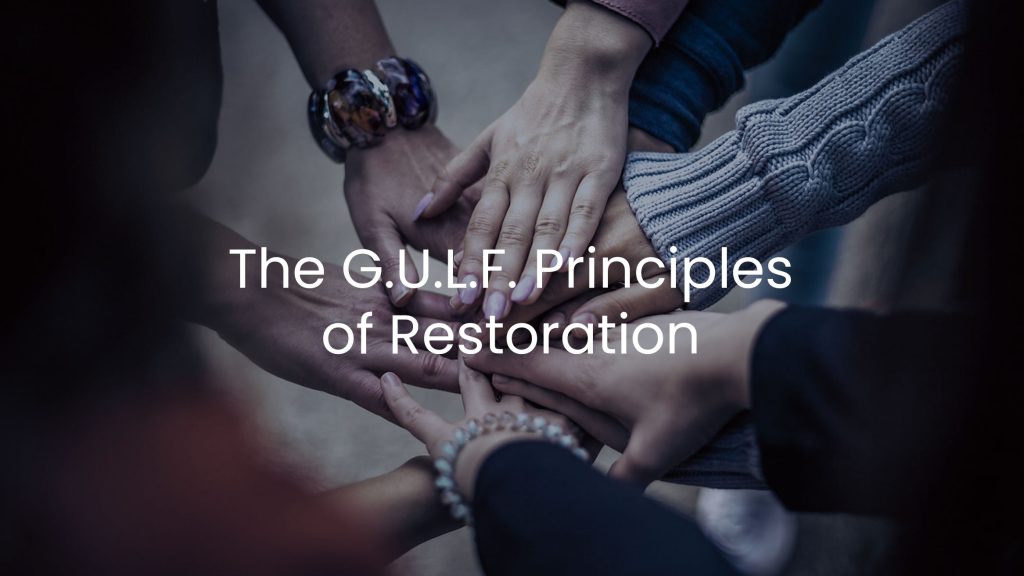|
Getting your Trinity Audio player ready...
|
For all have sinned and fall short of the glory of God (Romans 3:23, ESV).
Created by our Father for relationship, we are as happy as those relationships. Because of sin (missing the mark of loving relationships), we find ourselves separated from God, others, and self.
This separation can be filled with the G.U.L.F. Principles of Restoration.

Grace: Means
While we were still sinners, Christ died for us (Romans 5:8).
Grace is the starting point for restoration. God uses grace to restore our relationships (with self, others, and God). With grace, self-condemnation and others-condemnation can’t exist. We are free to love again.
Rick Warren writes. . .
The Bible says that Jesus paid the penalty for our sins. How long do you remember a bill that’s paid for? Last month’s electric bill — a big deal back then, but now, since it’s paid, do you still worry about it? No. Once something is paid, you forget it.
Unity: Goal
Make every effort to keep yourselves united (Ephesians 4:3, NLT).
We don’t get to choose our sisters and brothers in Christ — though as a pastor for about 50 years, I sometimes wished that I could trade a few members to the church down the street.
A pastor friend once said. . .
We are completed by others. We are only one piece of a puzzle. The other puzzle pieces are held by our spouse, family members, church members, and people that God has appointed to walk with us. Unity keeps us from having something “missing” in our lives.
Love: Motive
And he has given us this command: Those who love God must also love their fellow believers (1 John 4:21).
Love results from experiencing grace. When we are forgiven, we forgive others. There isn’t a greater motivation than love. Love does what’s best for others at the expense of self.
Since God is Love, Spirit-empowered love creates within us an “offensiveness” to anything that would destroy our relationships. We lose the desire for sin because we love God, others, and self!
Forgive: Test
Make allowance for each other’s faults, and forgive anyone who offends you. Remember, the Lord forgave you, so you must forgive others (Colossians 3:13).
The mark of a mature Christian is the ability to receive God’s forgiveness and then extend it to others. One author writes. . .
Many years ago I was driven to the conclusion that the two major causes of most emotional problems among evangelical Christians are these: the failure to understand, receive, and live out God’s unconditional grace and forgiveness; and the failure to give out that unconditional love, forgiveness, and grace to other people. . .
We read, we hear, and we believe in a good theology of grace. But is it the way that we live?
Let’s remember the G.U.L.F. Principles: Grace as the means; Unity as the goal; Love as the motive; and Forgiveness as the test.
Let the peace of God rule in our hearts.

